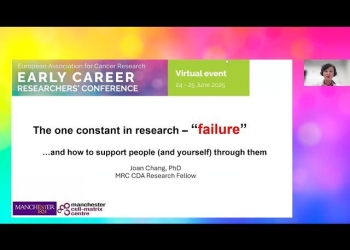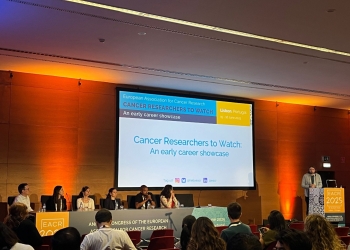The EACR’s ‘Highlights in Cancer Research’ is a regular summary of the most interesting and impactful recent papers in cancer research, curated by the Board of the European Association for Cancer Research (EACR).
The list below appears in no particular order, and the summary information has been provided by the authors unless otherwise indicated.
Use the dropdown menu or ‘Previous’ and ‘Next’ buttons to navigate the list.
Holderfield, M. et al. Nature. 629, 919–926 (2024).
doi: 10.1038/s41586-024-07205-6.
 Summary of the findings
Summary of the findings
RMC-7977 is a potent RAS(ON) multi-selective, noncovalent tri-complex small molecule
inhibitor that is selective for the active, GTP-bound state of both mutant and wild-type variants of the canonical RAS isoforms (KRAS, NRAS and HRAS). RMC-7977 forms a tri-complex with RAS(ON) and cyclophilin A (CypA), disrupting RAS effector binding through steric occlusion. RMC-7977 binds to the switch I effector binding domain and occupies a binding pocket between RAS(ON) and CypA. This pocket leaves a groove containing common oncogenic mutational hotspots G12, G13 and Q61 unoccupied, providing a structural basis for tri-complex formation with, and inhibition of, multiple RAS-GTP variants by RMC-7977.

action for RMC-7977 and support the clinical evaluation of RAS(ON) multi-selective tricomplex inhibitors, like the investigational agent RMC-6236, for the treatment of RAS addicted cancers.









